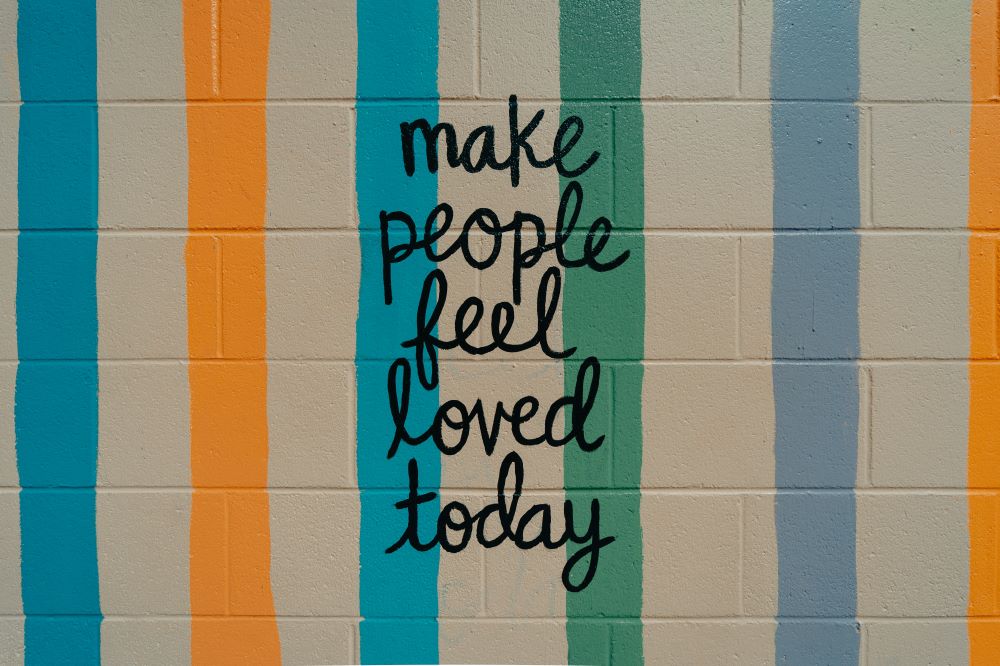
(Unsplash/Clay Banks)
Do we know ourselves, and everyone else, as both good and beloved?
I have found myself pondering this question more and more of late, both on a personal level and for the collective whole. I suspect that our honest answer, reflected in our lived reality, is at the root of much that causes disruption, disease, and division among us. At our darkest moments, it is hard to answer in the affirmative; even on our best days, if we're honest, we seem to be ambivalent.
In her 2020 book Native: Identity, Belonging, and Rediscovering God, Kaitlin B. Curtice, an enrolled member of the Potawatomi Nation, offers a key insight into how things might be different if we could answer this question deep in our hearts with a resounding "yes."
What if, at the beginning and at the end of everything, the only thing that matters is that we saw and called it good — called each other good, called this kind earth good, and called the very nakedness that comes with knowing ourselves good?
Maybe, just maybe, that's the whole point of beginning again.
Maybe, just maybe, that's what the promise of a new world will always bring us.
What if? What might be different? What would our lives, communities, church and world be like? Just imagine the possibilities!
The Hebrew Scriptures of course begin our story in the Book of Genesis with the creative goodness of God's love. God said "let there be," and there was … light, waters, land, night, day, seasons, plants, living creatures of every kind — even the creepy crawlies — and God said it was good. All of it.
Then, our story continues, God created humankind in God' s image. Yes, my friends, that includes you and me and even that person you dislike or disagree with so very much. If you remember, after all this creative output, God called it very good. All of it. All of us.
Advertisement
God's creative act of love binds us together with God, with the human community and with all of creation. We are inextricably linked and connected in goodness and love. As Pope Francis wrote in Fratelli Tutti, "We were created for a fulfillment that can only be found in love."
Yet God wasn't finished. God isn't finished. The story continues.
At Christmas we celebrated the radical act of the Incarnation, through which Jesus identifies with all human beings and shares our messy reality. God is with us. God as one of us.
The mutual relationship of the Trinity further roots us together. The three persons are distinct, yet they are one, unity in diversity personified. The trinity gives us a model for relating in community. Again, from Pope Francis in Fratelli Tutti: "If we go to the ultimate source of that love which is the very life of the triune God, we encounter the community of the three divine persons, the origin and perfect model of all life in society."
These are the truly radical spiritual and theological roots of goodness and belovedness, springing forth from Creation, Incarnation and Trinity. The roots invite us to understand ourselves, and everyone else, as good and beloved. The more we embrace and understand them, the more we accept and lean into our goodness and belovedness, the closer we will be to God's dream of peace through justice and fullness of life for all. Maybe it is that simple, and that complex.
I recently reread Henri Nouwen's 1992 book, Life of the Beloved: Spiritual Living in a Secular World. Nouwen understood that the path to transformation starts with us becoming people who believe that we are indeed beloved. He wrote:
What is required is to become the Beloved in the commonplaces of my daily existence, and, bit by bit, to close the gap that exists between what I know myself to be and the countless specific realities of everyday life. Becoming the Beloved is pulling the truth revealed to me from above down into the ordinariness of what I am, in fact, thinking of, talking about, and doing from hour to hour.
Easier said than done, of course, which I suppose is how we end up focusing more on the negative, the differences, and what's not possible rather than doubling down on the hope and promise that springs forth from God's creative love as beloved community.
Beloved community was one of the main themes of Martin Luther King Jr.'s ministry. In 1966 he wrote Nonviolence: The Only Road to Freedom, in which he said:
I must continue by faith or it is too great a burden to bear and violence, even in self-defense, creates more problems than it solves. Only a refusal to hate or kill can put an end to the chain of violence in the world and lead us toward a community where [people] can live together without fear. Our goal is to create a beloved community and this will require a qualitative change in our souls as well as a quantitative change in our lives.
Let's help each other with this qualitative soul and quantitative life change. Let's help each other answer, "Yes, I/we are good and beloved." Imagine the possibilities.






